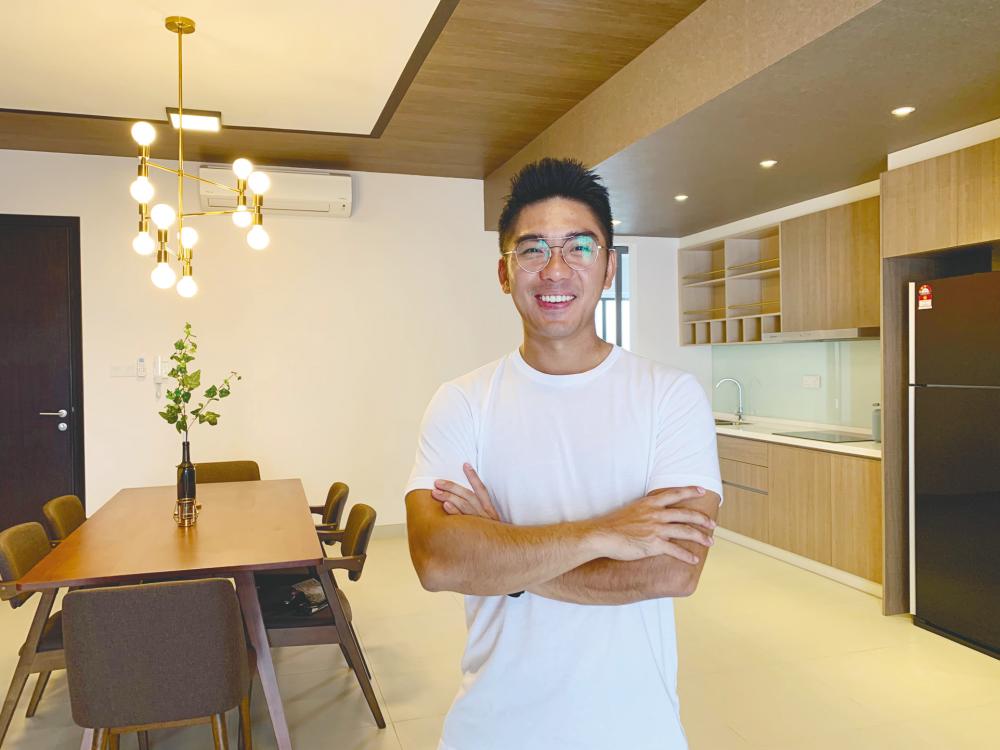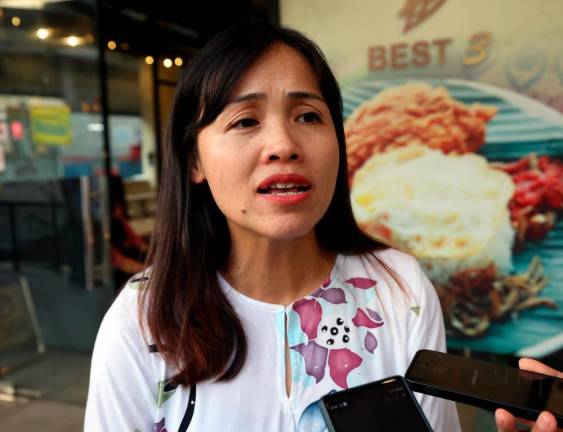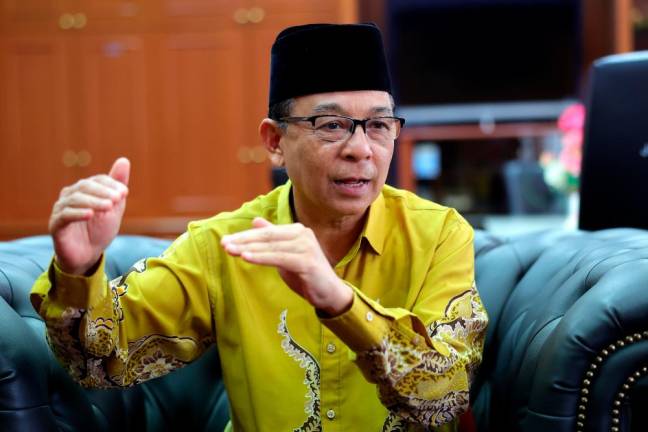The Property Guys managing partner Vincent Lim (pix) speaks to Property Take about the movement control order, virtual house tours and the rental market.
What does the movement control order (MCO) mean for Malaysia’s property industry and how will it affect buying, selling and renting trends in the coming months?
Buying and selling property will have to leverage digital means, like virtual viewing and Zoom negotiation – not easy as opposed to physical and face-to-face inspections. This has led to lower conversion rates unless developers allow low-commitment bookings or money back guarantees.
The sub-sales market has worsened because meeting strangers at non SOP-regulated premises can be worrying for buyers from a health risk perspective.
Currently, the rental market is in favour of landlords equipped with virtual tour videos and high quality photos.
Fully furnished designer homes will stand out because they look nicer online. Also, it has to be backed with no commitment or refundable booking in order to be convincing for tenants.
What are some of the trends that are in store for the property sector in 2021 and beyond?
There seems to be a huge delusional perception that the property market is booming because of low interest rates, rebates and incentives. There is news on how fast a developer can sell out within weeks upon its new launch but the labels of “sold out” are up to bookings only. The actual approval rate in terms of approval of financing can be as low as 30-50%.
Affordable home prices will win the market where anything below RM500,000 will work while anything above RM700,000 will be tough to sell. Home renting will be boosted by the home ownership programme introduced by the government to give full exemption on stamp duty for first -time home buyers.
Developers will continue to come out with schemes such as rent to own, zero down-payment and high discount rebates. Office spaces will continue to decline as corporate tenants will have many options at significantly lower rates. Shopping malls will face an uncertain period as they continue to lose out on tourists and expats.
I also foresee auction properties and firesales as attempts to save businesses.
Developers will be adding value to their offerings, and fully furnished designer homes as an option will become increasingly popular.
What role do you think technology will play in propelling the property industry further in 2021?
Property companies unequipped with digital and technological means will be losing out. Clients these days prefer convenience and, with busy schedules, they are willing to pay a fee to get menial tasks done. Nowadays, we need to accommodate our clients’ shorter attention spans and, so, technology related to communication and presentation will be most needed.
In terms of design, developers may want to look closely at functionality and, therefore, change certain typical layouts. An example would be the omission of a living hall as it is not essential now that most people have adopted a more individualistic entertainment consumption, through smartphones and laptops.
Outskirts/suburban areas might be in higher demand moving forward because work-from-home is on an upward trend and the price is much lower than in the city centre.
What are some tips for landlords and tenants during the MCO?
Landlords need to be understanding and more sensitive towards tenants’ financial challenges because of the pandemic. If tenants approach landlords for rebates or discounts on their rental, landlords with financial flexibility should consider it. Tenants who are not affected financially should not take advantage of the MCO and ask for a discount or waiver as landlords still have instalments to be paid off. It must be understood that a moratorium is a delayed form of payment only, not a waiver, to the landlord.
Beyond this, it is important to maintain professionalism between both parties at all times by communicating truthfully and honestly. This is crucial as early termination of a contract would likely result in a lose-lose situation.
What are some of the trends that can be observed by millennials and their renting habits as a result of this technological shift? What is to be expected in 2021?
Weak purchasing sentiment and low confidence with big-ticket items are some of the immediate trends as everyone starts to be frugal with their income. There will be a heavy price saturation as landlords try to compete in and around the same ballpark figure that is most appealing to consumers while there will be little room for capital appreciation as it will be relatively cheaper to rent than buy. The gap between household income and property price is getting larger by the year as well, making matters worse.
Currently, there are stricter rules and mortgage policies, making it more difficult to get housing loans.
Beyond that, millennials these days are also not ready for long-term financial commitments, leaving a lot of new buildings vacant with many options at low rental rates. Younger generations’ priority in life is different where they spend more on lifestyle or travelling. This is even more important considering 65% of the renters in Malaysia consist of this bunch. They prefer flexibility where they can shift from one place to another without much consideration. With technological advancements and the ease of working from home, they need not go to the office every weekday.
Companies are also not restricted to just employing local talent as overseas employees can be considered because work can be done remotely these days. This will increase preference for a nicer and cosier home because they spend almost all their time at home, work-leisure-dine-sleep. Thus, I’m confident in the designer fully furnished rental market.
How has CozyHomes managed to innovate using technology amid these turbulent times?
By leveraging technology, we understand the rental rate market well and are giving optimal rental advice to the owners, suggesting to rent out fast. Familiarising with the demand and the supply of different areas definitely helps to optimise our marketing strategy for the best interest of both tenants and owners.
To help the owners minimise the downtime for their unit, we are launching a data-driven promotional campaign to capture the remaining 50% of the local market seeing that 50% of the expat market has diminished due to the closed borders.
We have minimised the response and completion time for each request from our tenant/landlord through our digital dashboards, enhancing customer experience. We have also shortened the rental journey by implementing virtual tours, saving time and costs to minimise disruptions caused by the MCO.
How is CozyHomes increasing convenience for its tenants considering that MCO has immobilised many people?
With our virtual tours that come with 3D virtual features we are confident they’ll be able to replace physical viewings/inspections. We assure quality through a money-back guarantee alongside dashboards that improve the communication between landlords and tenants with regard to maintenance requests, complaints, rental deferment requests and more. We have also introduced digital stamping and e-signatory for tenancy agreement that mitigate delays in paperwork processing.
CozyHomes’ plans for the rest of 2021 include dashboard for owners and tenants to ensure automated communications with our clients and, ultimately, a better customer journey; online booking for rental units, and also online purchasing for our add-on and maintenance services; to serve the new market using our tenancy management program and the property agents, instead of just owners and tenants.
CozyHomes, owned and operated by The Property Guys, is a property rental platform of designer homes in Malaysia.













